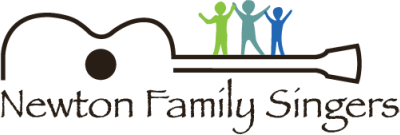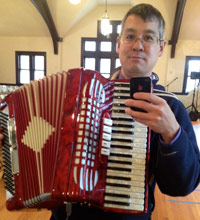|
Hope you all enjoyed our Pete Seeger-themed Spring concert as much as we did.
In the spirit of Pete, we included lyrics in our program for anyone who wanted to sing along. Before we made that decision however, we had the fleeting idea that it might be nice to read Pete's own words about his songs, his friends and his place as a music maker. So, here are the quotes that were gathered -- not all the songs are represented -- in case you wanted to think a bit more about the concert and imagine what Pete might have thought of it. All quotes by Pete Seeger from Where Have All the Flowers Gone: A Singalong Memoir (1993) except as noted. Oh When the Saints (trad; arr The Weavers, additional arr. Eastburn) “In the Weavers, my main contribution was as an accompanist, a singer, an arranger. A finder of songs more than a writer of songs.” If I Had a Hammer (w. Lee Hays, m. Seeger, arr. Peter, Paul and Mary) “When I get a crowd singing, I sometimes joke that one can sing the melody as I wrote it, or as various others have changed it, all at the same time. Somehow they all harmonize with each other. There’s a good moral here, for the world.” Hine Ma Tov “As a last resort, [The Weavers] took a job in a tiny Greenwich Village nightclub… The Village Vanguard was an education. Into it came a wider range of folks than I’d expected, including Hillel and Aviva, two young Israeli musicians fascinated by us mixed-up Americans singing songs in Yiddish and Hebrew.” Howjadoo “If singing were all that serious, frowning would make you sound better.” How Can I Keep from Singing: Pete Seeger (1981) by David King Dunaway My Rainbow Race (Seeger) “Music as a group activity is more important than music as an individual accomplishment.” Charles L. Seeger (Pete's father) Union Maid (w. Woody Guthrie, m. trad; arr. Eastburn) “Woody’s ‘Union Maid’ used the melody of ‘Red Wing’ (whose 1907 author may have heard Robert Schumann’s ‘The Happy Plowman.’) But I think it’s more likely he (she?) remembered some old German folk tune which Schumann also remembered.” O Mary Don’t You Weep (trad; arr. Eastburn) “A notation of folksong in a book is like a picture of a bird in a bird book. It was changing before the picture was taken, and changed afterward.” Charles L Seeger Old Time Religion (trad, new lyrics by Seeger; arr. Eastburn) “For several decades a group of science fiction fans who like to write satirical verses to well known tunes have exchanged mimeographed songsheets which they call ‘filk songs.’ Who started this one off, no one knows, but it has so far accumulated over 500 verses.” Put Your Finger In the Air “Woody heard Burl Ives sing “The Blue Tailed Fly” (which Alan Lomax taught to Burl). And not one, but several of Woody’s children’s songs are based on this tune. Woody once joked… ‘I’m the biggest song-stealer there ever was.’” Blowin’ in the Wind (Bob Dylan; arr. Peter, Paul and Mary, additional arr. Rick Sladkey and Eastburn) “When Bob Dylan switched to an electric guitar at Newport in 1965 I was not upset with him. I was furious at the sound system. I wanted to cut the cable. Bob was singing one of his best songs, but you couldn’t understand a word, because of the distortion.” Wimoweh (m. Solomon Linda, transcribed as Wimoweh by Seeger, additional lyrics by George David Weiss) “The Weavers called me a ‘split tenor’ because I could yodel down from falsetto and also handle the shouting in key of G. But beware that your tenor doesn’t get hoarse. Solomon Linda lost his voice; so did I after 30 years.”
2 Comments
|
AuthorJack Cheng directs the Clemente Course in Dorchester, excavates in the Middle East, and writes in Waban, MA. Archives
October 2019
Categories |


 RSS Feed
RSS Feed
